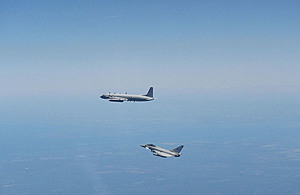Trade Credit Insurance backed by £10 billion guarantee
- Trade credit insurance coverage to be maintained across the market in light of COVID-19, with up to £10 billion government backing
- measures will support thousands of businesses by protecting against customer defaults or payment delays
- scheme is available on a temporary basis for nine months, backdated to 1 April 2020, and available insurers operating in the UK market
Trade Credit Insurance, which provides essential cover to hundreds of thousands of business-to-business transactions, will receive up to £10 billion of government guarantees, ministers announced today.
The Trade Credit Reinsurance scheme, which has been agreed following extensive discussions with the insurance sector, will see the vast majority of Trade Credit Insurance coverage maintained across the UK.
The guarantees will support supply chains and help businesses during the coronavirus pandemic to trade with confidence, safe in the knowledge that they will be protected if a customer defaults or delays on payment.
Business Secretary of State Alok Sharma said:
Trade Credit Insurance is a daily necessity for hundreds of thousands of businesses across the UK – particularly those in non-service sectors such as the manufacturing and construction sectors.
Our £10 billion guarantee gives peace of mind to businesses, allowing them to continue to trade and maintaining liquidity in supply chains. This reinsurance scheme is an important step as we carefully set about firing up our economy as we emerge from the pandemic.
The Economic Secretary to the Treasury, John Glen said:
Billions of pounds of business turnover is supported by Trade Credit Insurance each year. This reinsurance scheme will see the government and insurers working closely together to ensure that the vast majority of this cover remains in place. This means that businesses and supply chains can continue to be protected at this pivotal time as we begin to kick start the economy.
BCC Director General Adam Marshall said:
The government has demonstrated once again that it is listening to the concerns of our business communities.
The launch of a government-backed guarantee to support the provision of trade credit insurance will help ensure that this vital lifeline remains available to businesses during and after this crisis, helping to maintain supply chains and trade.
Stephen Phipson, CEO of Make UK, said:
For most manufacturers, credit insurance is essential – giving them certainty that they will be paid for the orders they deliver. We’re pleased that the government has taken action to jump-start the credit insurance market – which will provide a welcome boost to our nation’s makers as they recover from the COVID crisis.
IoD Head of Europe and Trade Policy Allie Renison said:
These measures are a lifeline for many businesses with nowhere else to turn. To help the economy get up and running again, maintaining confidence in supply chains is crucial, and we are encouraged to see this come as the product of collaboration between government and industry.
CBI Director of Financial Services, Flora Hamilton said:
The new government guarantee to backstop trade credit insurance will be welcome by businesses across the UK. The TCI scheme will support supply chains, enable many to prepare for restart in earnest and bring employees off the job retention scheme and back into work.
This is a very critical step, along with other government financial support, in driving the recovery of the UK.
The scheme is available on a temporary basis for nine months, backdated to 1 April 2020, and running until 31 December 2020, with the potential for extension if required.
The scheme will be followed by a joint BEIS/HMT-led review of the Trade Credit Insurance market to ensure it can continue to support businesses in future.
Notes to editors
- Trade Credit Insurance underwrites an estimated £350 billion of economic activity of more than 630,000 businesses in the UK each year. It insures suppliers selling goods against the company they are selling to defaulting on payment, giving businesses the confidence to trade with one another
- due to coronavirus and businesses struggling to pay bills, there is a risk of credit insurance being withdrawn or premiums increasing to unaffordable levels, which could cause serious issues for liquidity and working capital across business supply chains
- the scheme will be delivered through a reinsurance agreement that is open to all insurers currently operating in the UK market, covering both domestic and overseas trade with payment terms of up to 2 years
- the scheme rules will also require participating insurers to comply with certain undertakings regarding the conduct of their business during the period of the scheme. This includes conditions that insurers will forgo profits and will not pay dividends or bonuses for senior staff for their guaranteed Trade Credit Insurance business
- to protect businesses that the private credit market cannot insure, export credit insurance is also available from UK Export Finance to cover UK exports to 180 countries. Government-backed export insurance from UKEF can protect the 230,000 businesses that export from the UK against the risk of not getting paid when selling internationally
- implementation of the scheme is subject to state aid approval, agreement of full form documentation with insurers and acceptance of applications from insurers for participation
